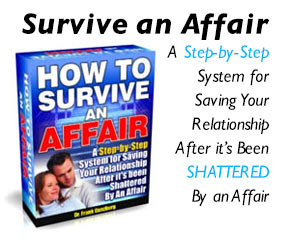Ouch! Did Your Marriage Counselor Really Say That?
You might be surprised at some of the comments I hear that other marriage counselors tell their clients.
Or, maybe you unfortunately experienced some of these situations directly when you were trying to repair your marriage.
The most common error I hear from couples I work with is when the counselor they saw before was stymied by the complexity of their problems. The counselor sent them away telling them to get divorced because their situation was hopeless. Not only is this a message of complete discouragement, but this position doesn’t consider that there might be other therapists who regularly work with highly complex marital situations.
Since the couple is seeking help, there could also be hidden strengths that don’t readily appear. These strengths have motivated the couple to spend their time, effort, and money to preserve their relationship.
Another common error I hear is when the counselor takes sides between the spouses. An example might be, “Your spouse said he was at the racetrack, but didn’t gamble. Now he’s told you the truth, can we move on from there?”
Most Errors Are Made in Situations of Infidelity
For example, a scenario I am told frequently is when the previous therapist told the person who was cheated on to “get over it.” In other words, stop dwelling on the affair and put the affair in the past and work on the present and future.
What’s the problem with this approach?
- First, without addressing the infidelity, how can anyone address the probability of another affair, or the probability of continuing the most recent one?
- Second, how does the injured person deal with his or her hurt, betrayal, and anger without focused attention and discussion on the affair and its history?
- Third, without knowing some of the details about the affair, there is no way to find different paths to go down. The typical response of, “Trust me, I’ll never do that again. I certainly learned my lesson!” just doesn’t make it.
Another common error is when the therapist helps one of the spouses to feel sorry for himself or herself. Feeling like a victim encourages despair rather than productive solutions.
And a pretty regular complaint I get about someone’s prior marriage counselor is that the therapist or counselor allowed the couple to flounder and avoid some of the major issues.
Good marriage counseling requires:
- A therapist with the courage to confront the spouses about issues
- Someone who does not feel compelled to be politically correct, choosing to accept moral equivalences or other orange-apple comparisons from one of the spouses rather than confronting that spouse’s problem behaviors.
Imagine the situation where the wife complains, “He spends hours on the phone with his female co-worker.” The husband replies, “Yes, but you spend time with the crosswords when I’m home.” The therapist responds, “What do you expect if you’re not available to him when he wants to talk? Maybe if you would put the crosswords down he wouldn’t feel the need to talk to the other woman.” The therapist in this situation is incorrectly equating the impact of playing crosswords and spending time with another woman.
Oh, there’re a lot more, but this sampling should be enough to get you thinking before you select someone to work with.
I wish you all the best in repairing your marriage. If you will be working with a marriage counselor, I wish you success in finding someone who is not only experienced, but works well with complexity, is encouraging and committed to maintaining marriages, and has the courage to let you and your spouse know when you are doing right and when you are doing wrong. From this discussion you can see that choosing a therapist involves more than just looking up a marriage counselor in the phone book.
Warm regards and best wishes for success in finding a marriage-friendly therapist,



